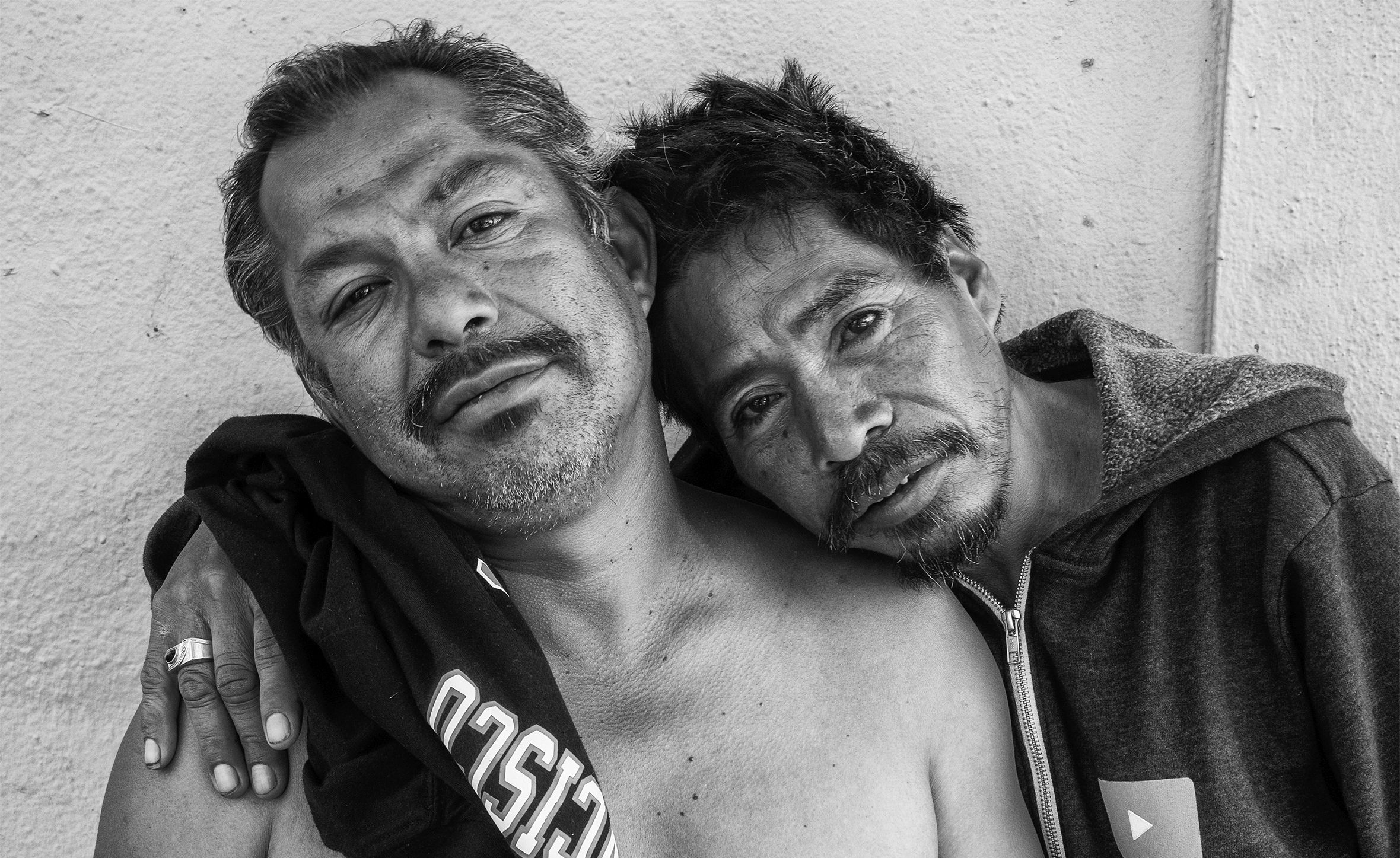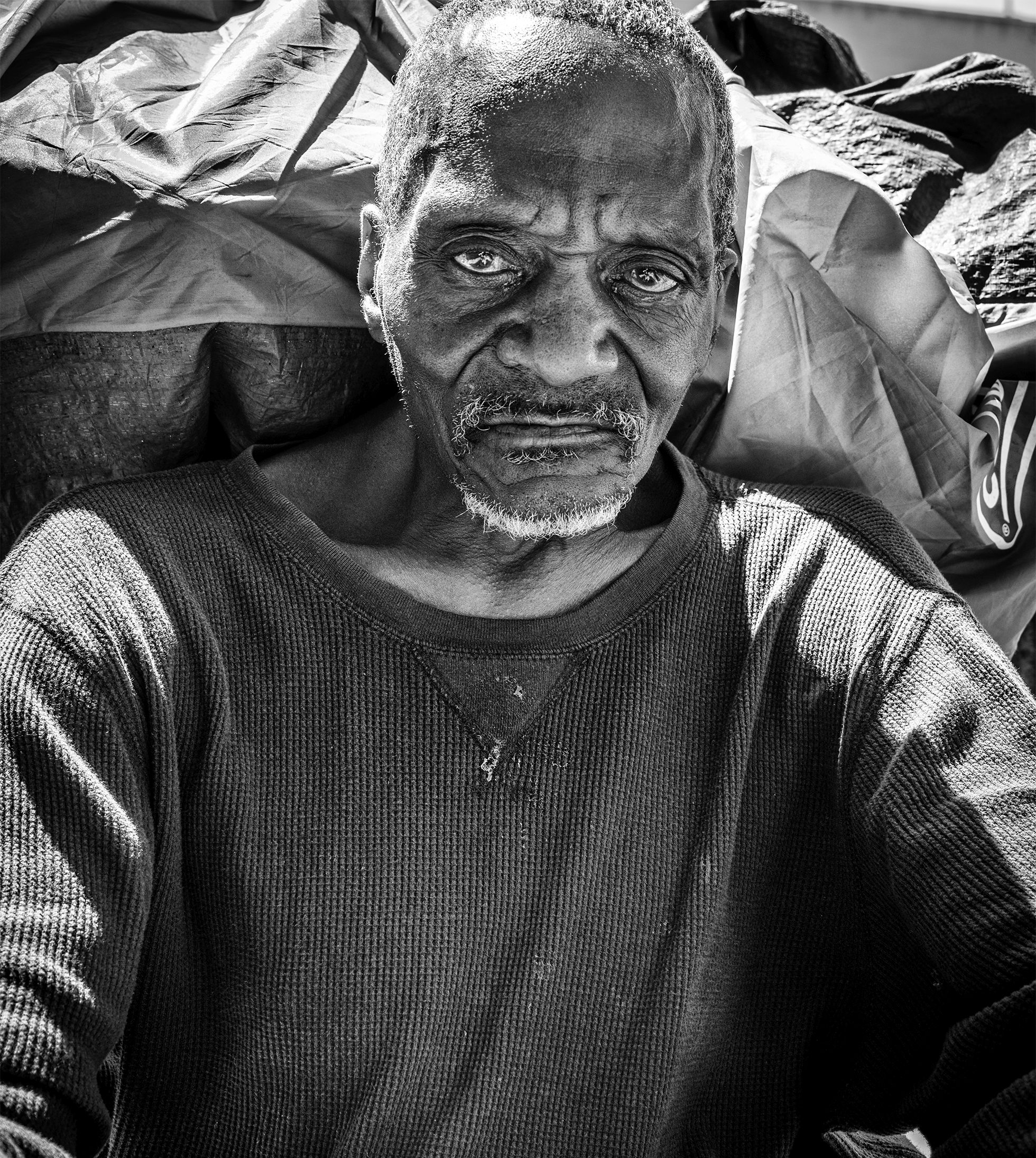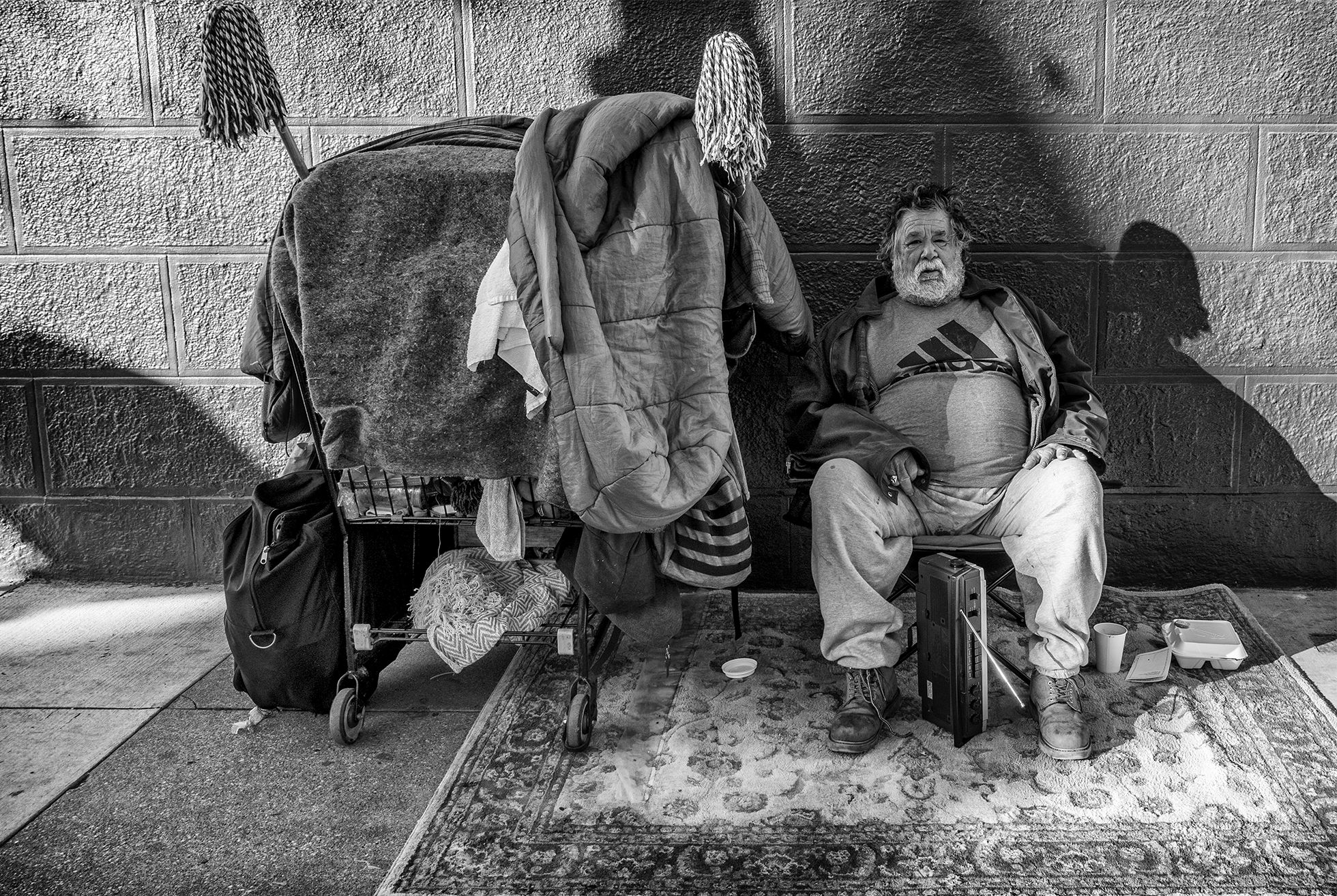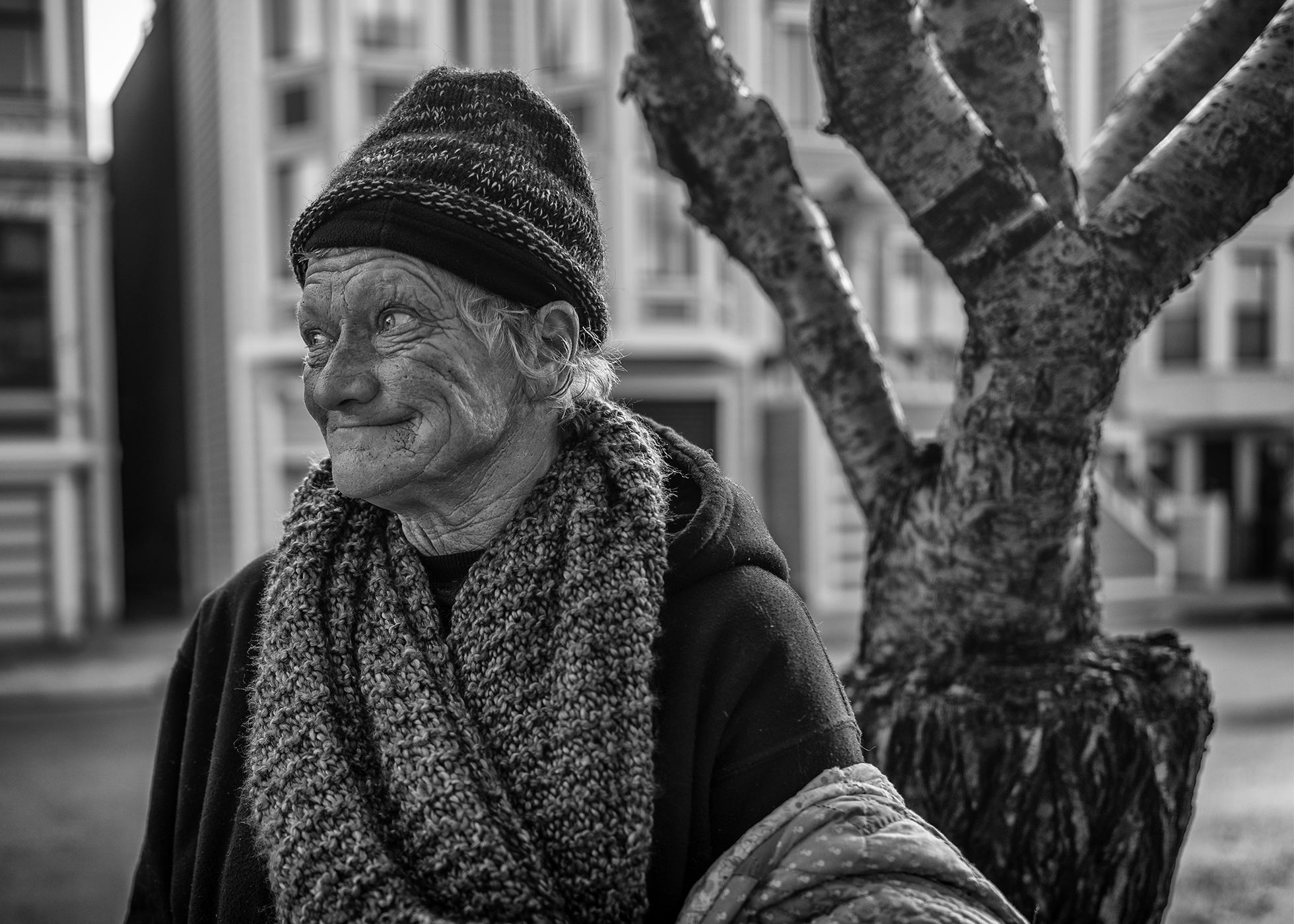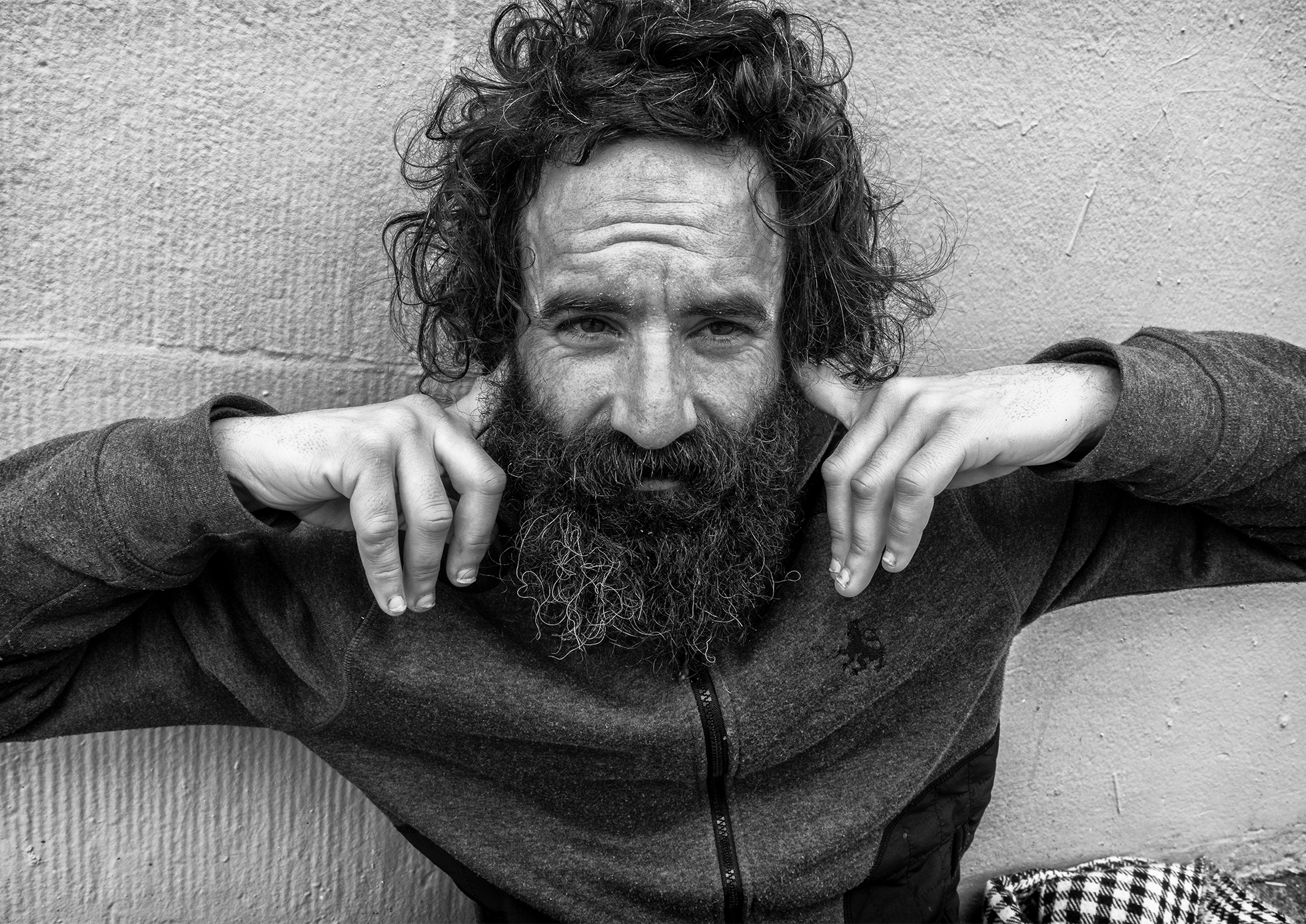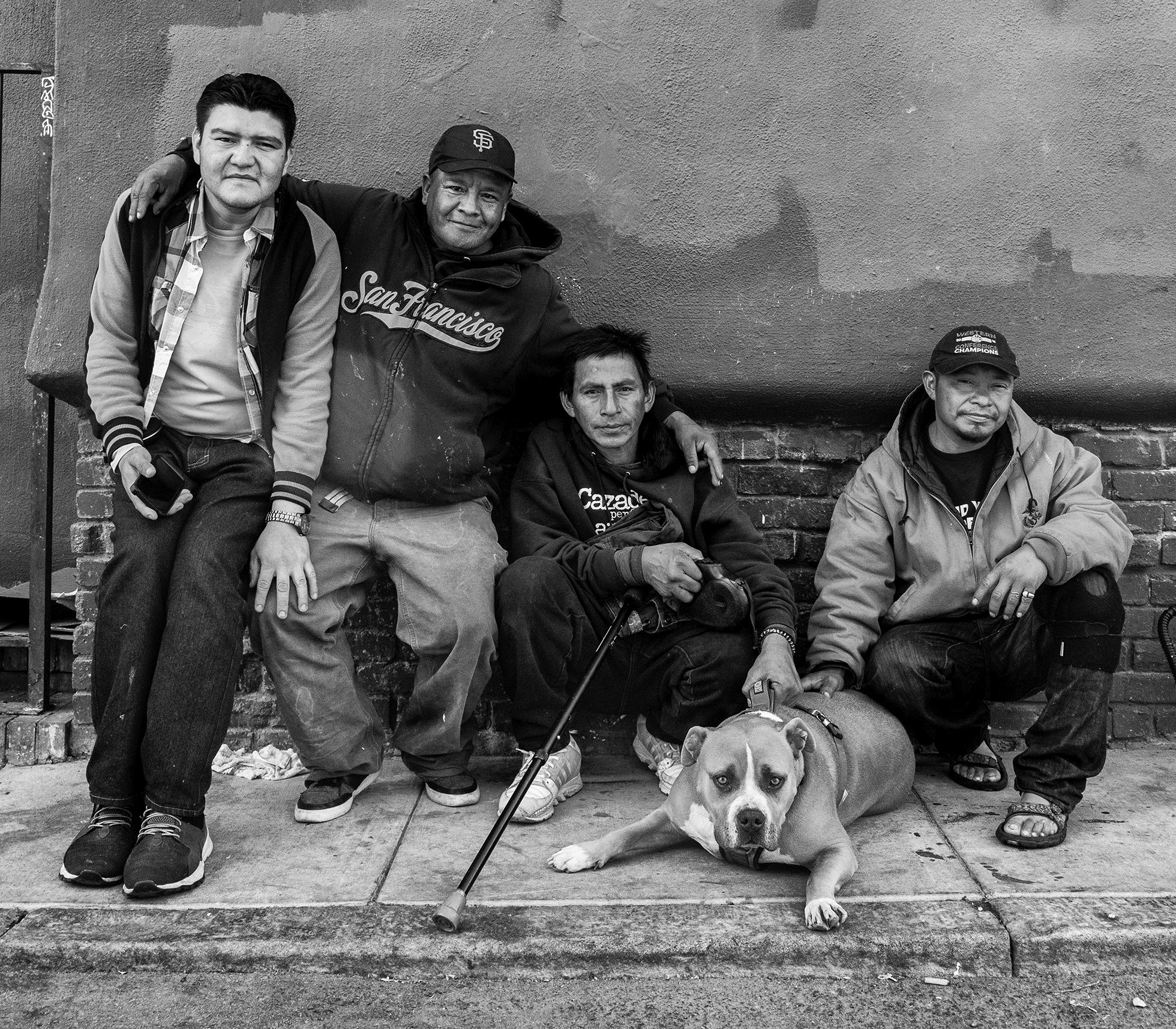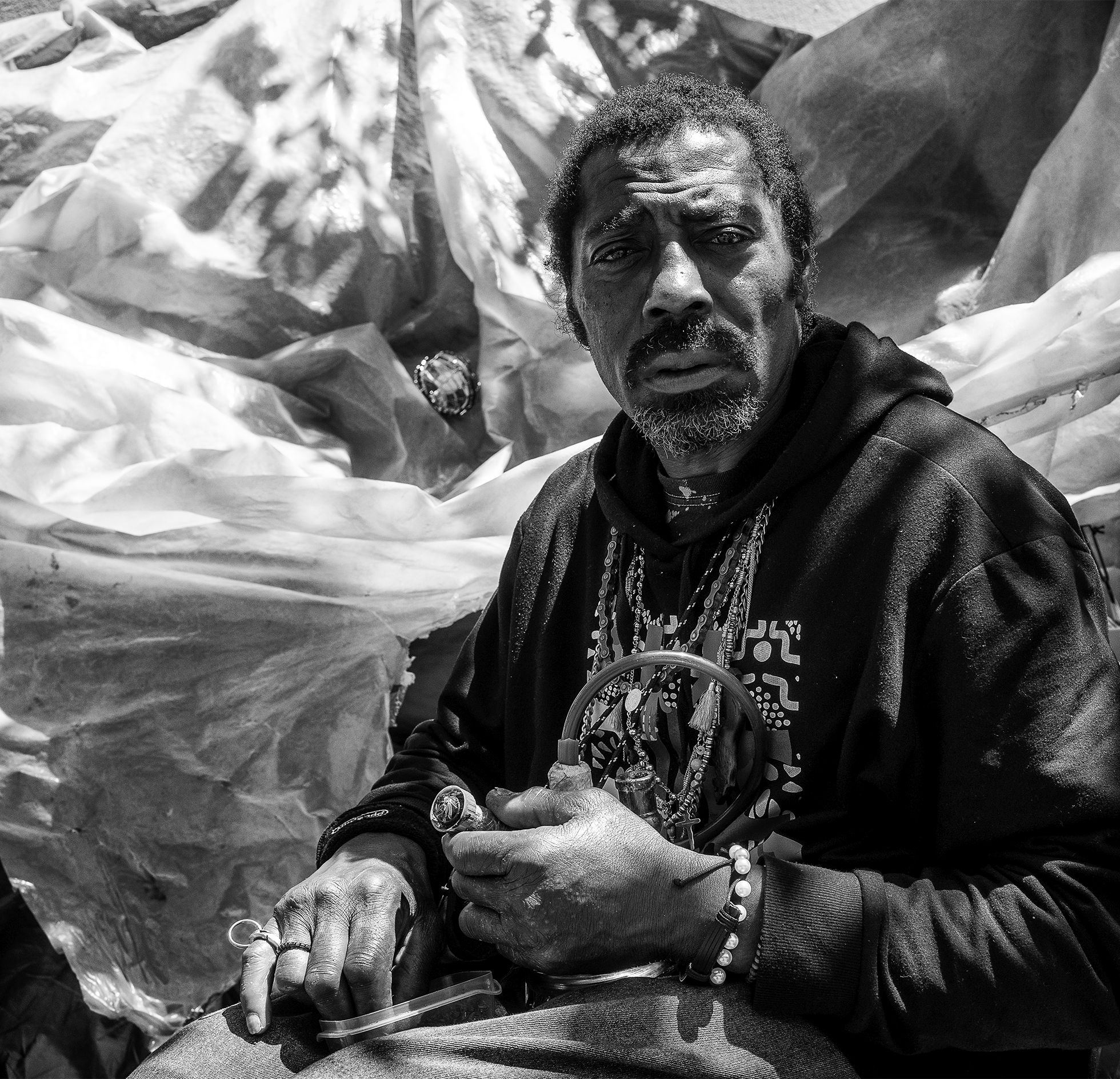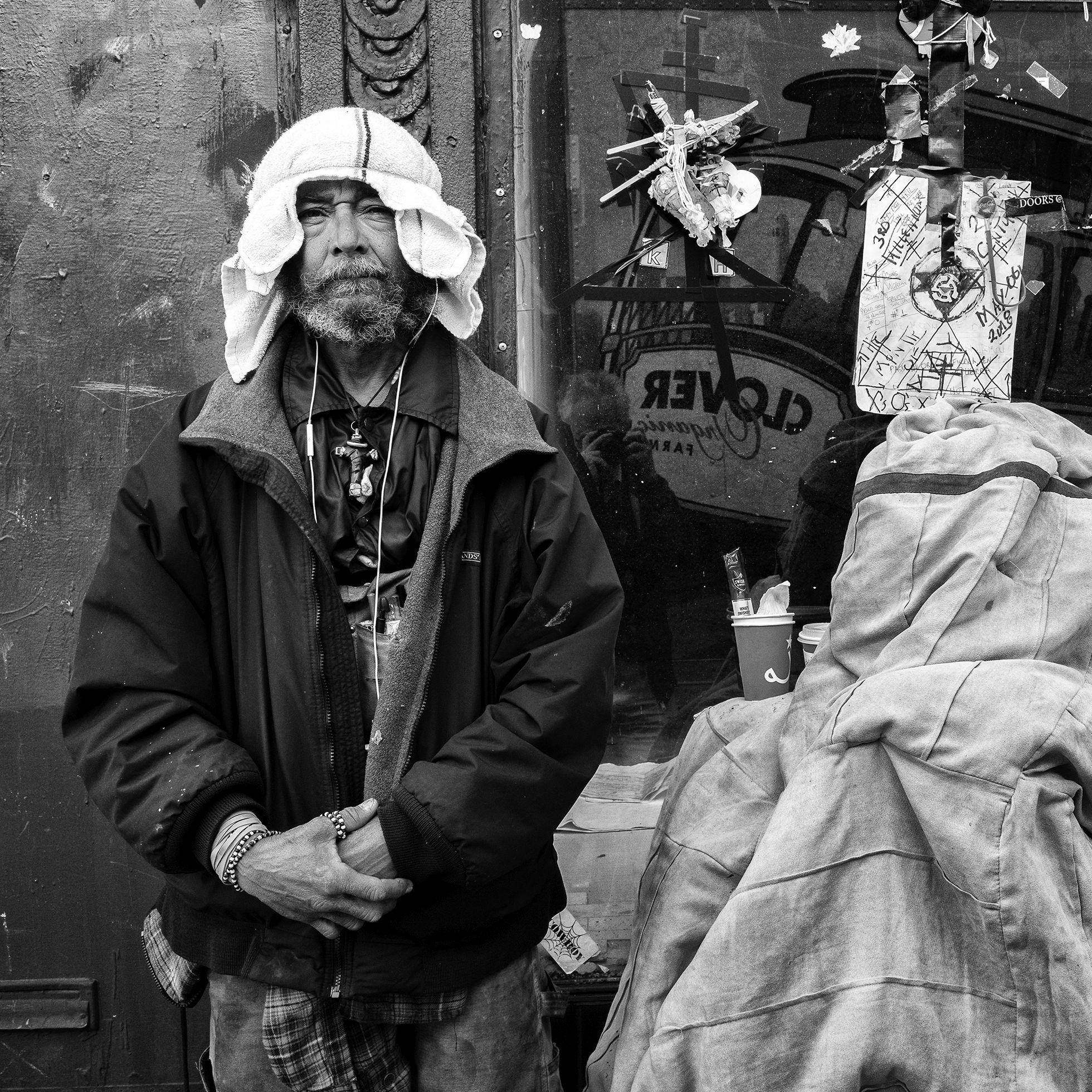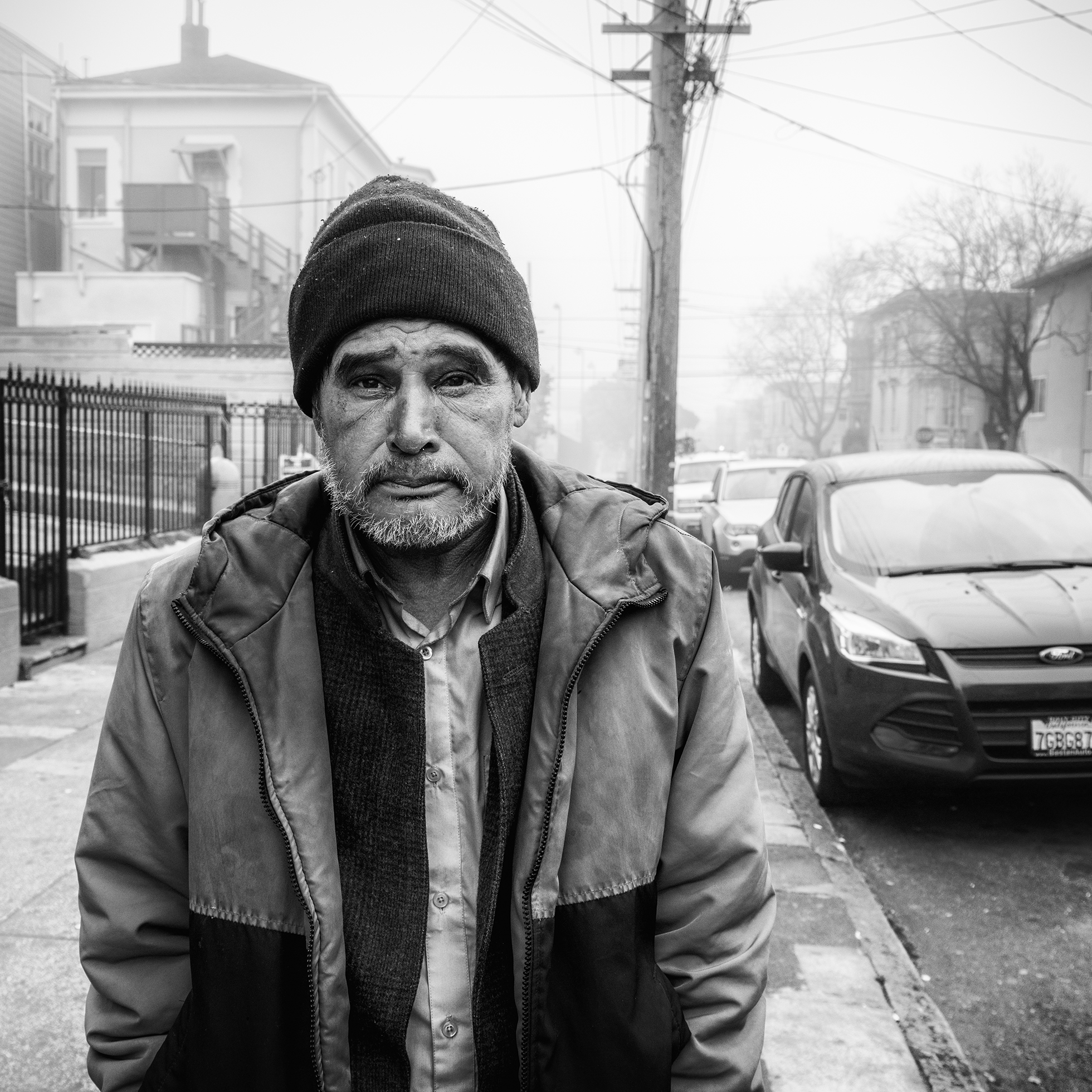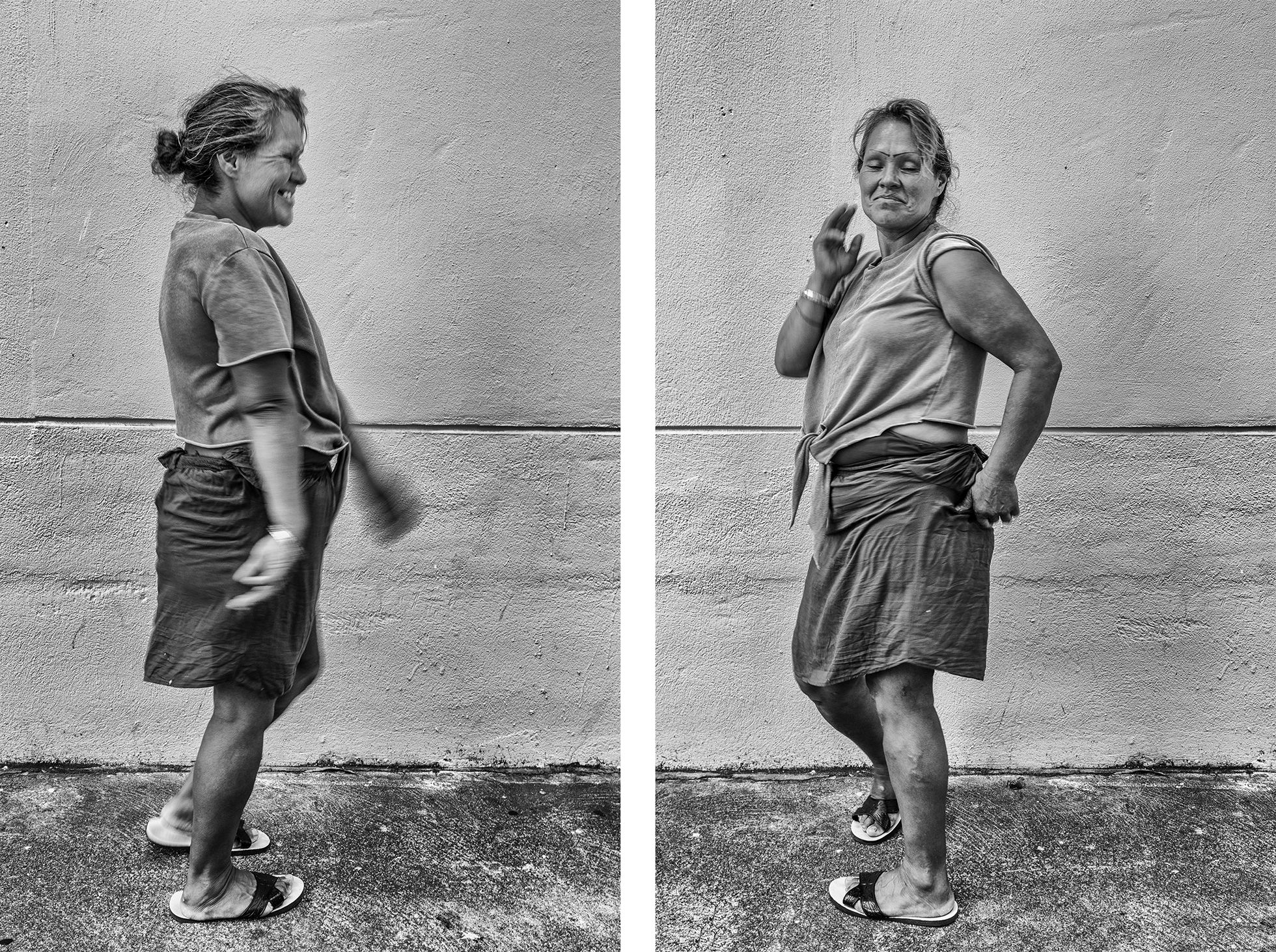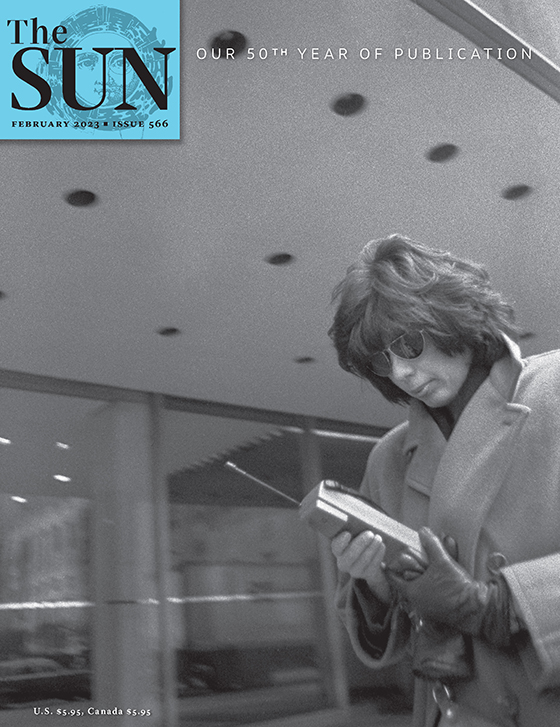Most days, within a block of my house in San Francisco, I’ll encounter someone who is unhoused. Since 2011 I have befriended and photographed unhoused people, and the experience has changed me in a way I never would have imagined. I will stop and talk to them and listen. They might offer to share food with me, even when they do not have enough for themselves. One man said to me, “Most people see us as drunks, but you talk to us and see our humanity.” This is what I hope my photographs convey.
Anger and fear about the large numbers of unhoused people on the streets of our cities have led to sweeps by the police and sanitation departments, breaking up any community the unhoused people have built. They often lose their belongings, including identification and medicines, and social services struggle to reach them when a room or other help is available. Criminalization of homelessness is not a solution. We need to seek alternatives that affirm our common humanity and get people the services they need.
Recently San Francisco started giving hotel rooms to unhoused people. Among those I know, this has noticeably changed their lives for the better.
André
August 26, 2019
André is fifty years old and from Louisiana. He served in the military and has three brothers and four sisters. His mother gave all her sons French names. During the pandemic I rarely walked down the street where André had his tent, but I did talk to him once. He said that two of his younger brothers had recently died. He had expected to go before they did. A few months later the city removed all the tents from that area of the Mission District. I do not know where André went, but I hope he got placed in a hotel. I miss talking to him.
Charlie
December 15, 2019
For many years Charlie camped out on a corner near my house. I regret to say that I avoided contact with him, afraid that if I was friendly, he might park himself in front of my home. I finally talked to Charlie in 2019, after he’d moved to another area of the Mission District. I learned that he is a veteran and gets a monthly check but is hoping to receive a lump payment, which would allow him to get into an apartment — although somewhere less expensive than San Francisco.
Charlie usually sits on a folding stool next to his shopping cart, listening to music or reading. He generally does not hang out with other homeless people. He is quiet, does not drink nor use drugs, and never leaves a mess. Recently Charlie moved back to his old corner, this time with a tent. I now consider him a friend and neighbor.
Jonalyn
December 26, 2020
Jonalyn lived in Portland, Oregon, before coming to San Francisco about fifteen years ago. She used to share an apartment with her mother, but then her mother died, and Jonalyn has been living on the street ever since. She told me that her biggest problem is dealing with the “demon friends” her mother left her.
Delson
December 19, 2019
Delson is originally from Yonkers, New York. He finished trade school and then traveled with friends across Canada and down the West Coast. He fell in love with San Francisco, so when a friend offered him a spare room, he moved in. That was seventeen years ago and the last time he had a place of his own. When I first spoke to Delson, he thanked me for stopping and talking. He said being homeless made him feel isolated and cut off. Every time I see him, he asks if he can help me with anything. I usually ask for a hug. He is one of the most polite people I know.
Manuel (Kiko), Franco (Silencio), Edwin (Vampiro), Cabezón (dog), and Jorge
October 10, 2019
Many of the Latino men I have met from Mexico and Central America have given each other nicknames. Vampiro, for example, got his when his cousin saw him drinking the juice out of a pan in which a steak had been cooked. Vampiro’s dog, Cabezón (Big-headed), was loved and cared for by all the men at the Caledonia Street encampment. They told me Cabezón did not like police, but I suspected he’d just picked up on the tension others felt when the police arrived.
On perhaps the coldest morning of 2020, I got to their encampment and found that city workers had shown up at 5 AM and loaded everyone’s clothes, bedding, and other possessions into a truck headed for the dump. The encampment was closed and the people dispersed. I saw Vampiro a few months ago, and he told me Cabezón had been stolen.
Markael
May 14, 2022
Markael was born and raised in San Francisco. His parents and siblings are all dead. He and I had a discussion the day we met about how the criminal-justice system got many young Black men off to a bad start. He said that he’d gotten caught up in the system before he was old enough to know what it is to be an adult, a man, a human being. By the time we’d finished talking, he’d given me permission to take his photograph.
Joseph
May 11, 2018
When I first met Joseph, he refused to let me photograph him because he said it depleted his psychic energy. It would be almost a year before he trusted me enough to let me take his picture. Joseph believes he has psychic powers that allow him to step out of normal reality and into a state beyond time.
When the pandemic hit, Joseph disappeared for a while. When I saw him next, he told me that he’d gotten a room in a hotel on Market Street. Before that, Joseph would often have angry outbursts, but at no point in this recent conversation did he exhibit any anger. Perhaps having his own room made him feel less threatened.
Mario
January 31, 2020
When he was eight years old, Mario came with his parents to the United States from El Salvador. At nineteen he got a green card and a job cashing checks at the Bank of America on Ellis Street. About three years ago his father died, followed by his mother.
In March of 2021, after living on the street for ten years, Mario told me that he had been given a room in a motel. It has a bed, a bathroom, and a TV. He is now on a list to receive permanent housing. He is sixty-one years old.
Penny
September 15, 2019
Penny was pushing a shopping cart filled with her belongings when I met her. Thinking I, too, was homeless, she told me about a good place to get free meals. We talked for a while, and I found out that she was from Mendocino, California, where her family lived, but she had been living on the street in San Francisco for a little more than a year. I asked if I could take her photograph. She agreed but did not want to be photographed with her shopping cart. Instead she led me across the street and did a little dance in front of a blank wall.
